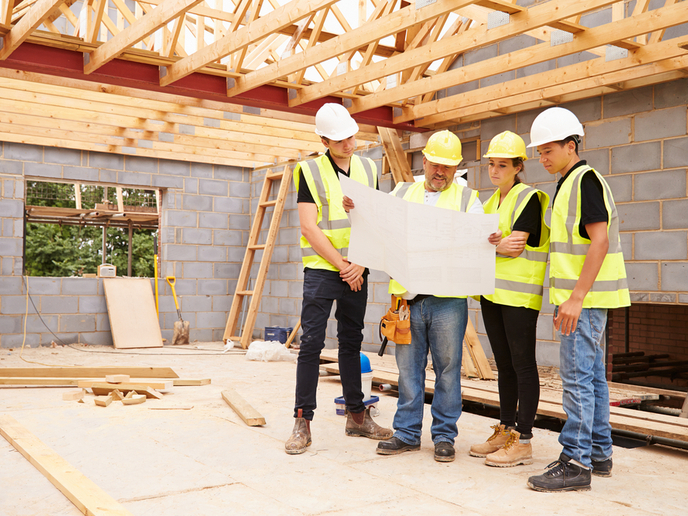Upskilling energy-efficient construction in North Macedonia
The national qualification road map of North Macedonia was developed under the BUILD UP Skills initiative to increase energy efficiency (EE) and renewable energy sources (RES) building skills in the country. The roadmap identifies the skills required, indicates where there are skills shortages and calls for updated training where needed. To help overcome barriers such as a lack of trainers/training providers and low market demand for EE and RES skills, the EU-supported TRAINEE (TowaRd market-based skills for sustAINable Energy Efficient construction) project developed training for priority skills listed in the road map. The project also established a knowledge centre, which as well as providing training access also offers an online tool for homeowners to evaluate the energy performance of their buildings – a regional first. “Awareness raising was critical. For example, despite building information modelling (BIM) being a crucial construction innovation worldwide, it was little known in North Macedonia. So, we developed training and a policy proposal for its introduction nationally,” says project coordinator Jadranka Arizankovska from the Economic Chamber of North Macedonia.
Qualifications along the whole value chain
To upskill the workforce towards EE and RES, voluntary qualification schemes from previous BUILD UP Skills projects were first updated and a process developed for the recognition of prior learning (RPL) for several professional groups: on-site workers; technicians/engineers; architects and designers; as well as installers of solar-thermal energy and photovoltaic systems. TRAINEE then developed nine new training topics for these groups. The new BIM course – for practitioners, decision makers, builders and manufacturers – used ACCA software. As this is an interoperable open BIM tool, certified and approved by the industry body buildingSMART, it ensures quality and sustainability. The RPL route to certification was piloted for 11 occupations with 429 trainees, of whom 369 were certified, while all nine new training schemes were piloted with 234 trainees, of whom 183 achieved certification. “We found short training sessions with small groups of 6-10, with less theory and organised as on-the-job training, to be most effective,” remarks Arizankovska. To promote EE, the project also developed an online tool for its knowledge centre which allows users (homeowners or occupants) to evaluate their building’s energy performance, along with suggestions for improvement.
Higher-quality buildings, energy savings and more employment
The knowledge centre, based in Skopje at the Engineering Institution of Macedonia, currently holds the catalogues that can be used for scheduled training. To date, 20 memorandums have been agreed with construction companies interested in having their employees take part in the training. To further increase EE visibility and demand, the centre also houses the project’s online searchable register of certified workers and trainers. “It has been of interest to the authorities as a basis for a national register of licensed renewable energy sources installers, in alignment with the Renewable Energy Directive,” adds Arizankovska. The centre is now working to secure official verification of the training by national institutions for adult education. The project’s results also contribute to European efforts to standardise qualifications, such as achieving ISO 17024 for professional profiles, with TRAINEE developing and piloting in Croatia, Greece and Slovenia its methodology for mutual recognition of skills between countries. “In the meantime, more work needs to be done to promote opportunities, especially of the benefits of RPL to on-site workers who do not yet seem to fully value this approach as a means to certification,” says Arizankovska. The TRAINEE team has ensured the continuation of its work through the ongoing Horizon 2020 project SEEtheSkills aiming to stimulate demand for energy-efficient construction skills through a novel ‘3V’ approach which increases their visibility, validation and value.
Keywords
TRAINEE, North Macedonia, building information modelling, sustainable, construction, building, skills, training, energy efficiency, renewable



